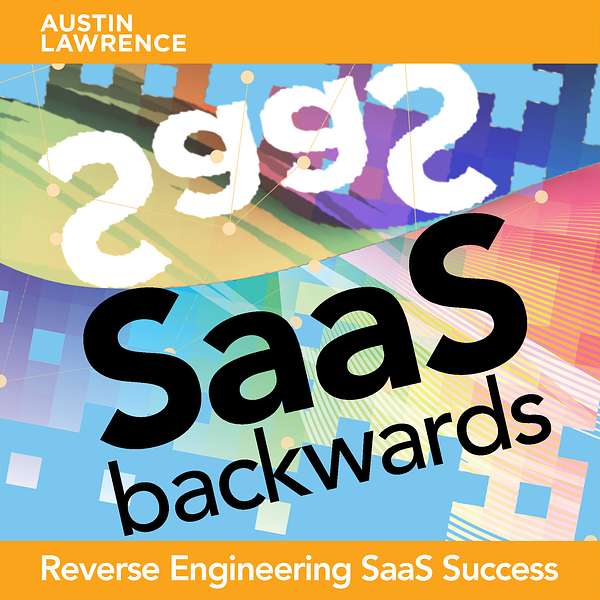
SaaS Backwards - Reverse Engineering SaaS Success
Join us as we interview CEOs and GTM leaders of fast-growing SaaS and AI firms to reveal what they are doing that’s working, and lessons learned from things that didn’t work as planned. These deep conversations dive into the dynamic world of SaaS B2B marketing, go-to-market strategies, and the SaaS business model. Content focuses on the pragmatic as well as strategic, providing a well-rounded diet for those running SaaS firms today. Hosted by Ken Lempit, Austin Lawrence Group’s president and chief business builder, who brings over 30 years of experience and expertise in helping software companies grow and their founders achieve their visions. Full video and shorts on YouTube at https://www.youtube.com/@SaaSBackwardsPodcast
SaaS Backwards - Reverse Engineering SaaS Success
Ep 15 - Mind the Gap(s) - Affiliate / Influencer Marketing SaaS Refersion Bootstraps to Liquidity Event
Refersion was founded in 2014. Prior to that, CEO Alex Markov was in digital marketing and dabbled in programming since he was a kid. Alex credits his career experience in affiliate / influencer marketing to help him to reimagine affiliate marketing and innovate on the model.
Important innovations included simplifying the onboarding process for merchants, and also tapping into emerging managed e-commerce platforms like Shopify. Importantly though he came to it from a developer's POV, he based his innovations on intimate knowledge of the pain points and gaps in solutions that e-commerce entrepreneurs were experiencing
Refersion was an intentional bootstrap. It allowed them to rule their own destiny and manage to KPIs that were more organic to the business than what might have been mandated by VCs. Alex was moonlighting until the business was able to support his basic needs. He called it a grind-it-out business model that enabled him to work on his passion with very little risk. He learned a lot about the real world of business as a result of having to make traction with an MVP product.
Alex tested the need for the product before having it by setting up a landing page that explained the main features he planned to build. The first couple hundred responses encouraged him to build the product. Alex is the second SaaS Backwards guest to mention using groups on social media to generate feedback and initial interest in his product (also true of Lemlist).
"You either build your product or you raise money - very hard as a sole founder to do a good job at both," asserts Alex. As a bootstrap startup you have also to be willing to take a longer view. Hiring decisions are harder when you're keeping your eye on the bank balance. He made the first hiring decisions based on where he was spending too much of his own time, adding staff to offload work from his plate. And one of the key initial hires was in customer success, which remains a major focus for Refersion.
An early decision that helped him grow was to build a partner ecosystem - SaaS firms like Shopify but also agencies that craft the e-commerce experience. They spend a lot of time on teaching agencies about the offering and that adds to sales momentum. These investments in partnerships and a platform model have been the main drivers of Refersion's growth. It's an interesting contrast with the venture-fueled model of SDRs, AEs and a lot of outbound pressure to try and generate sales.
Alex recently sold the business to Assembly, an e-commerce company owned by Providence Strategic Growth, a decision he says was made at the right time. "All companies need to grow up," said Markov. "Now we have the best of both worlds, we can run the business as we always did but now it's like we're on steroids." He credits Assembly with accelerating investments in the business and bringing new capabilities via Assembly's extended family of companies.
It's a great interview and I can
---
Not Getting Enough Demos?
Your messaging could be turning buyers away before you even get a chance to pitch.
🔗 Get a Free Messaging & Conversion Review
We’ll analyze your website and content through the eyes of your buyers to uncover what’s stopping them from booking a demo. Then, we’ll give you a personalized report with practical recommendations to help you turn more visitors into sales conversations.
And the best part?
💡 It’s completely free.
No commitments, no pressure—just actionable advice to help you book more demos.
Your next demo is just a click away—claim your free review now.